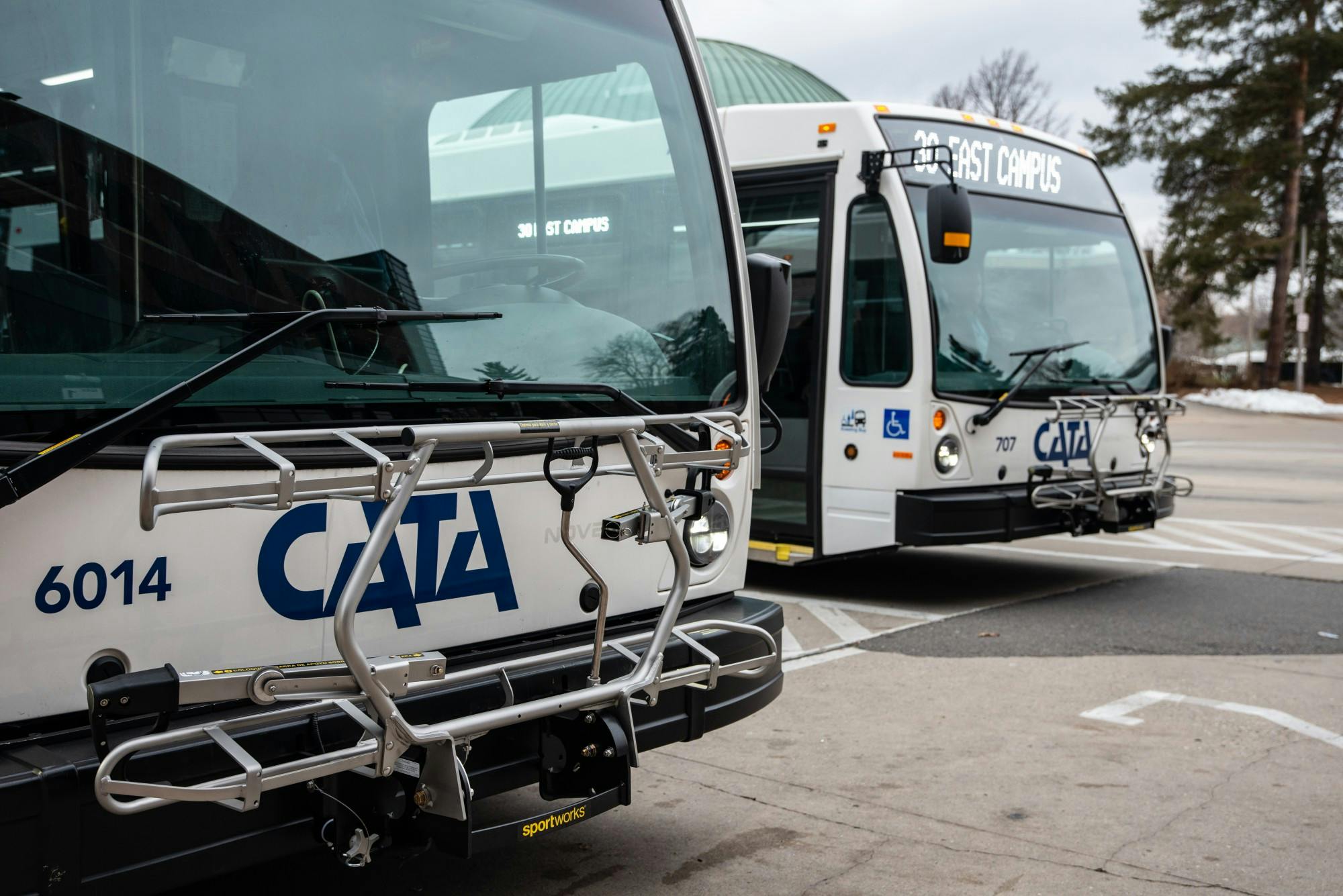Mobility industry experts discussed Michigan's industry, government and academia's role in the future of autonomous mobility in a Michigan State University forum Thursday.
A message from Lt. Gov. Garlin Gilchrist and Michigan Chief Mobility Officer Trevor Pawl, who highlighted some of the state's efforts to accelerate the first and last mile for autonomous mobility, kicked off the meeting.
"Now as lieutenant governor of our extraordinary state, I am determined to ensure that we are doing everything we can to gain and maintain a competitive advantage and solidify our position as the car capital of the world for generations to come," Gilchrist said.
Both focused on new approaches in the industry, like the core elements of the new mobility era: autonomous, connected, shared and electric.
"Simply being the best at autonomous cars is too narrow of a win to claim global leadership overall mobility," Pawl said.
Interim Vice President for Research and Innovation Doug Gage also spoke on MSU's mobility research efforts at the university.
Some of the technologies MSU developed include shuttle and bus systems. The university is looking into automated systems for food delivery and custodial work and landscape maintenance.
MSU President Samuel L. Stanley Jr. moderated the panel of industry experts, which included Director of City Solutions at Ford Motor Co. Jon Coleman, Executive Vice President for Bosch in North America Paul Thomas and Chief Scientist of the U.S. Army Ground Vehicle Systems Center David Gorsich.
"Michigan State University really is innovating first mile/last mile mobility as well as working, demonstrating the benefits of the technology on our campus and the laboratory," Stanley said.
According to Stanley, over 60% of MSU engineering graduates take a job in Michigan, and about 85% of graduates take a job in the Midwest, all of which potentially playing a role in Michigan's mobility industry. So, the experts took a look at Michigan's influence and what those looking to go into the field must be aware of.
Thomas said that recently he had seen many students from the coasts wanting to go into the automotive industry, as opposed to Google or Apple.
"A lot of them wanted to be with Ford, with GM, with Bosch and a lot of the others," Thomas said. "I think we're starting to make the industry exciting again."
Coleman and Thomas expressed the need for diversity in people and educational backgrounds, Thomas specified the growth in need to have backgrounds in software engineering and in people who can think holistically. Coleman also thought people should begin looking into artificial intelligence.
With the area available on campus, MSU has been able to conduct autonomy-related research and development, which includes imaging depth and velocity estimation, weather, autonomous systems and more.
Gorsich said the similarities between military bases and college campuses could be beneficial and present opportunities for military collaboration with academia.
"(Autonomy) makes our systems faster, more efficient; it protects soldiers' lives and everything that we do, but of course as part of the first/last mile and discussions today," Gorsich said. "It's not only about us out in the battlefield but our bases, and how we automate our systems at our bases. ... They're geo-fenced and somewhat controlled in that we could do things that we may not be able to do out in the commercial roads."
Bases will continue to rely on commercial systems, Gorsich said. To everyone, the key will be to understanding the environment.
"If the environment was never changing and we had total knowledge of the environment, everything would be simple but that's not the case," Gorsich said.
As far as mobility at the university and other cities, Thomas said city planners should look into how they weave in parking and if it is effectively being used. They should also look into the safety, efficiency and investments like charging stations, he said.
Additionally, Thomas noted accurate mapping of communities for deliveries, and interconnectivity among buildings, cars and people.
Support student media!
Please consider donating to The State News and help fund the future of journalism.
Discussion
Share and discuss “Industry experts talk future of mobility at MSU forum” on social media.








